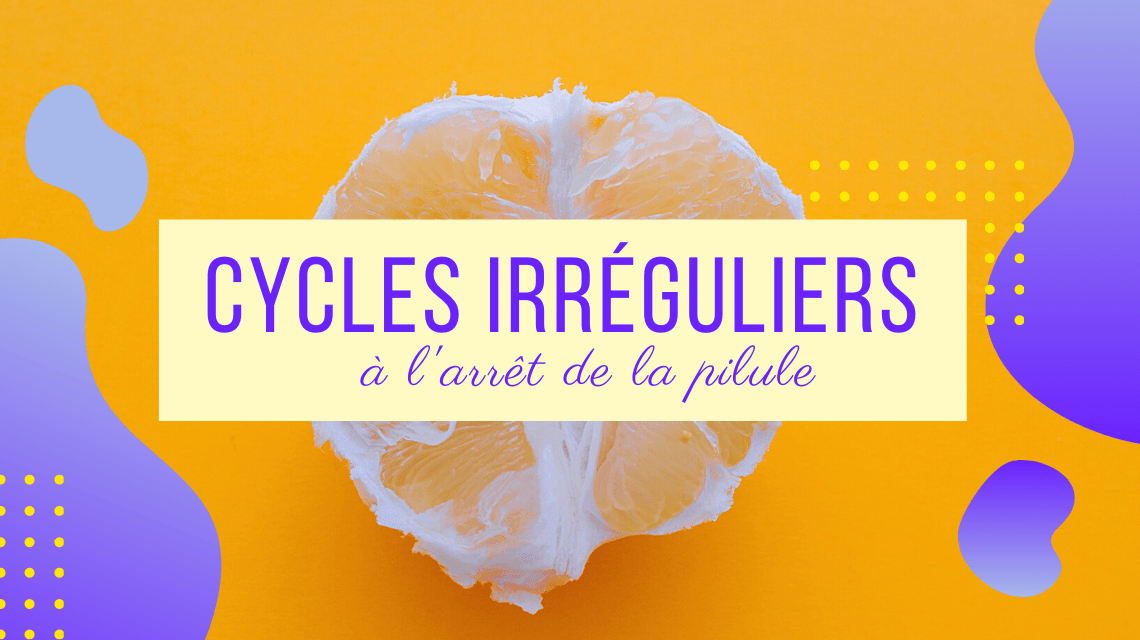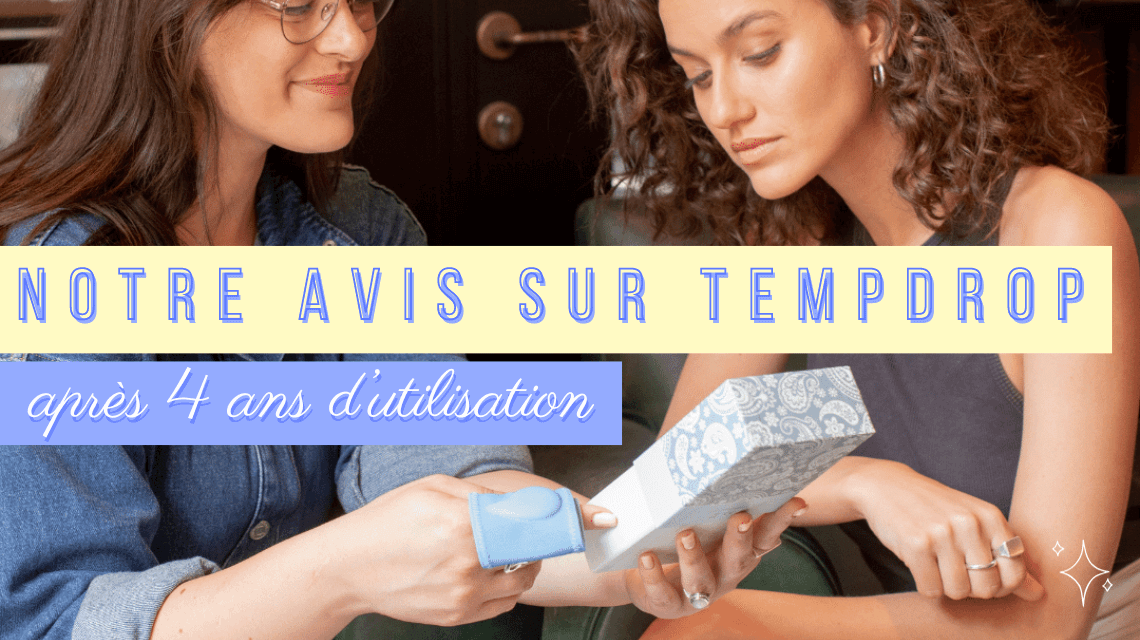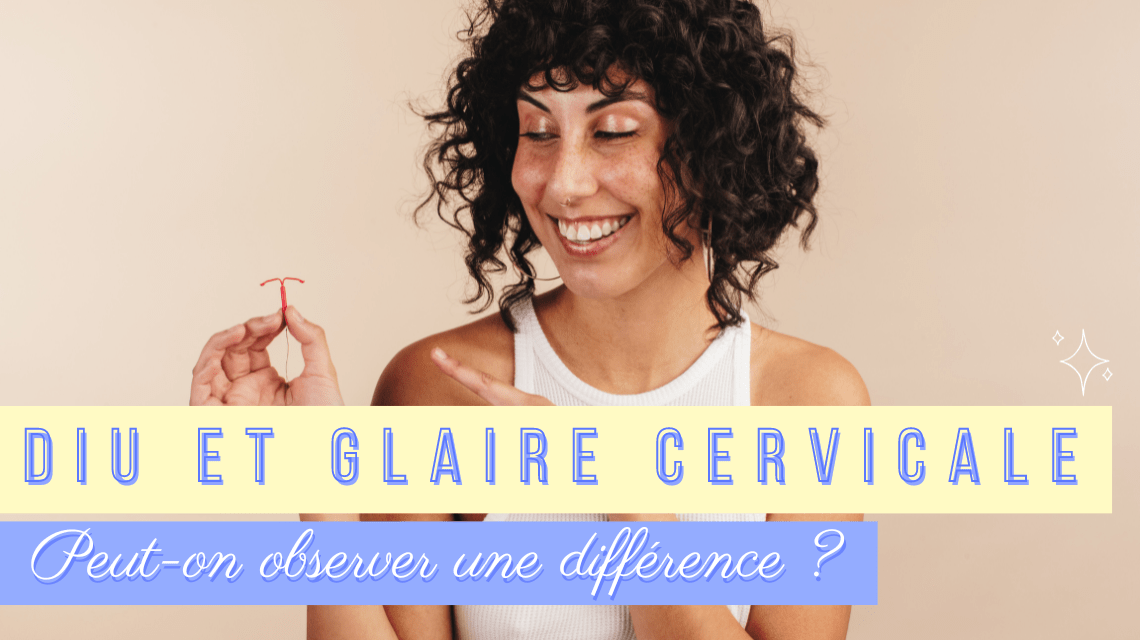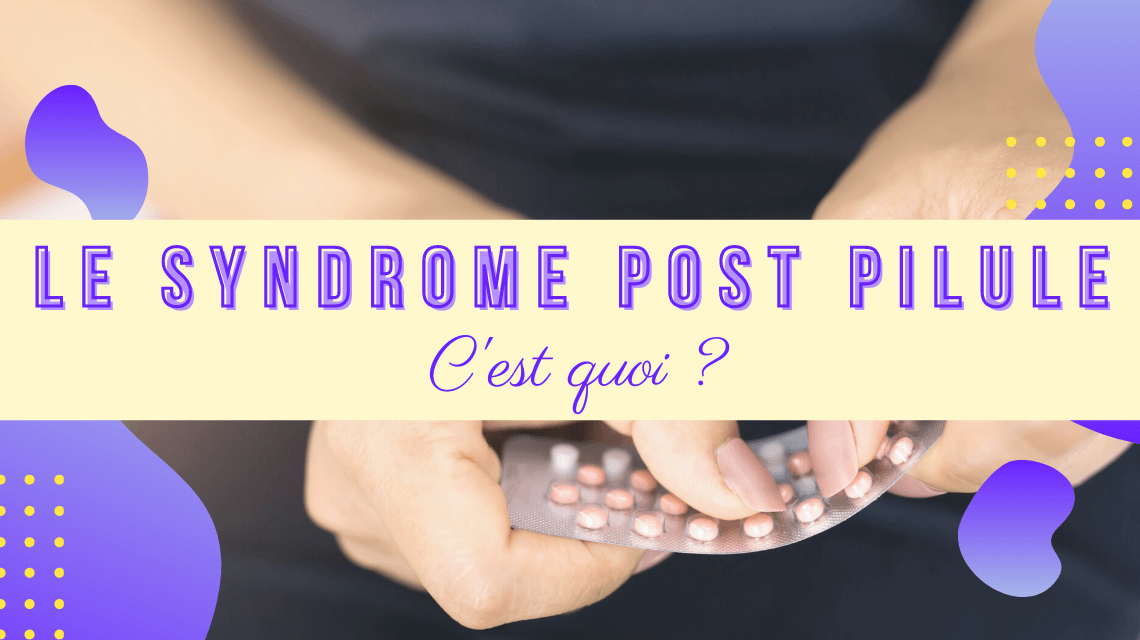When you stop taking the pill, or any other hormonal contraception, you may wonder whether you'll have regular or irregular cycles for the first few months after stopping.
This question makes even more sense if, before you started taking the pill (when you were a teenager, or even later), you already had irregular cycles. In fact, that's probably why you prescribed the pill in the first place, after the purely contraceptive aspect.
When we talk to you by private message and you mention the problem of irregular cycles, your first reaction is fear of your body's reaction. An opportunity for us to highlight the phenomenon of "fear of the unknown". This often translates into a lack of understanding of the phenomenon in question. It's a theory that often holds true when it comes to our bodies. We know little or nothing about the mechanisms involved. As a result, ignorance often gives way to fear. There's no pejorative judgment here, quite the contrary. This reaction is entirely justified.
We fear or worry about things we don't know, or don't know well.
In this article, we aim to explain the causes of these irregularities. But also, to give you some ideas on how to overcome these problems of irregular cycles. You'll get a better grasp of this phenomenon and your fear will dissipate.
If this is one of the reasons why you're thinking of going offthe pill today, you'll see that it doesn't have to be that way, and that there are solutions.
Irregular cycles, an old story about getting started
What are "irregular cycles"?
Irregular cycles correspond to the fact of not having your period on a monthly basis, with a well-defined rhythm. In other words, a cycle that evolves around ovulation. Your menstrual cycle begins on the first day of your period, the first day of bleeding. At some point in the cycle, you will ovulate. The cycle ends when menstruation returns.
The female menstrual cycle does not necessarily last 28 days. This figure is just an average. The length of a cycle varies from woman to woman, ranging from 21 to around 35 days.
In fact, you may notice variations of a few days from one cycle to the next. But even if there are variations, they're not necessarily irregular cycles. We refer to irregular cycles or irregular periods when the range between cycles is much greater. You'll have your period once, then not at all for 1 month, or even 2 months, for example. Finally, an irregular cycle goes hand in hand with amenorrhea (absence of menstruation).
Why do I have irregular periods as a teenager?
When our menarche (first period as a teenager) arrives, our female cycle begins. As with any start-up, we can encounter "bugs". Very few people have a regular, well-adjusted menstrual cycle right from their first period. It often takes time for the "machine" to get up and running, and for adjustments to be made.
This is also the time when acne can start to appear. It's also the potential discovery of the menstrual pain that accompanies this new cycle.
Adolescence: hormones kick in
In reality, all these little "inconveniences" are the result of just one thing: the activation of your menstrual cycle's hormones, LH and FSH, secreted by the pituitary gland. These two hormones orchestrate the production of progesterone and estrogen. These are secreted by the ovaries during the cycle, until menopause.
Prescription of the pill in adolescence
As we mentioned earlier, before they're set like clockwork, this broom of hormones is blustering. At the same time, it's often at this point that, distraught and unaware of it all, we consult a doctor or gynecologist for the first time about our menstrual cycle, to explain the facts.
Resuming a cycle after stopping the pill: What should I expect?
Effects of the pill on the menstrual cycle
The pill is an endocrine disrupter: that's what it does.
An endocrine disruptor is a molecule that mimics, blocks or modifies the action of a hormone, disrupting the normal functioning of an organism.
With the pill, we're right in the middle of it! The synthetic hormones contained in the pill are designed to block ovulation and/or prevent changes in the mucus.
No, the pill doesn't regulate your cycle
It will block your reproductive system, disrupting communication between your brain and ovaries. That's what's expected of it as a contraceptive, but it has nothing to do with regulating your cycle. Particularly if you want to have a child, this is not the answer.
What happens when I stop taking the pill?
What is the main cause of an irregular cycle after stopping the pill?
As in the case of irregular periods in adolescence, the cause is once again hormonal imbalance. Since the dialogue between your ovaries and your brain has been disrupted, it may take a little time for your cycles to stabilize. You may also experience post-pill amenorrhea. But don't worry: your body knows, it hasn't forgotten anything. Your objective will simply be to help your body regain hormonal balance.
What if your emotional state affects your cycle?
A healthy cycle is a balanced cycle with its perfections in its imperfections. Your menstrual cycle can tell you a lot about your emotional state. An unbalanced cycle can lead to mood swings, depression and general malaise. It's all the more important to be aware of all this in order to be able to act as a whole!
This is why, during certain periods of our lives, we may experience irregular cycles, which we may then call "absence of menstruation" or "amenorrhea". For example, in the event of an emotional shock, a period of great stress, etc. Our menstrual cycle is interconnected with our emotional state!
How can I get my period back when I stop taking the pill?
If you discover irregular cycles and menstrual pain when you stop taking the pill, our first advice is to consult a gynecologist or even a doctor. If you don't want to go back on the pill, tell her about your experience. The point is to understand these imbalances: there's bound to be a reason. Going back on the pill won't explain this imbalance.
Understanding your cycle and spotting your ovulation
Cycle monitoring is first and foremost a way of reconnecting with your body. It highlights the different periods of your cycle and helps you understand how it works. This observation method is based on the symptothermal method, which is a natural contraceptive method. It allows you to detect your ovulation naturally, even if your cycle is irregular. Irregular rules have no impact on analyses.
By reconnecting with your cycle, understanding it and detecting your ovulation, you'll know when your period is coming. Remember: your period arrives 10 to 16 days after ovulation. So if you detect it, you know your period's coming soon: there's no more surprise and much less uncertainty. That's why we particularly like this method. To find out more, take a look at this article which explains how to set up cycle monitoring.
How does cycle observation work?
This method is based on the observation of your cycles using 2 precise indices which are :
- The evolution and variations of your temperatures throughout the cycle
- Analysis and changes in the texture of your cervical mucus or white discharge
In our opinion, this is a very useful practice to put in place when stopping the pill, in particular. This is the crucial moment when you need to show your body that you're there to listen.
How do I calculate my cycle after stopping the pill?
A cycle begins on the first day of your period, the day you notice the first real bleeding (not any spotting). Then, when you stop taking the pill, you can "calculate" the length of your cycles by referring to the various fertility indicators (temperatures and cervical mucus). In reality, it's not cycle calculation, butcycle observation. Thanks to her, you'll get to know the length of your cycles better and be able to predict the arrival of your period.
We recommend theMoonly App for tracking your post-pill cycle. A free version is available which is already very complete. But if you want to go one step further and benefit from the full power of Moonly, you can use the promotional code "MAVIEAPRES10", which gives you 10% off your subscription for the first year.

When do I get my period after stopping the pill?
The difference between withdrawal periods (i.e. bleeding on the pill) and "real periods" is that the latter are always preceded by ovulation. So, without ovulation, there is no period.
When you stop taking the pill, after you've had your last withdrawal bleeding, your first period may arrive at the same time as you used to on the pill. Sometimes, after stopping the pill, menstruation takes a long time to arrive in the next cycle. This leads to post-pill amenorrhea . The body needs to regain its hormonal balance, and this process can sometimes take several months. Don't panic, you can always take steps to encourage the return of menstruation when you stop taking the pill.
How many days after stopping the pill can I expect my period to return?
The most frequently asked question about irregular cycles or amenorrhea. And we understand this question. We may be anxious at the thought of not finding these rules and want to reassure ourselves. Unfortunately, since every woman is different, we can't tell you when they'll be back. Having said that, and to reassure you, most of the women we've been in contact with have seen their periods return rapidly after stopping the pill. Sometimes, they are even regulated like a pill. We also see women who have experienced a period of post-pill amenorrhea (from a few weeks to several months). They then returned to their normal rule. This was the case for Florette, who experienced a long cycle lasting over 72 days, and now has regular cycles again.
How are my periods after stopping the pill?
The first period after stopping the pill can sometimes be more painful and heavier than the period on the pill. For some women, the first period on the pill may also be much less painful and less abundant than on the pill. However, keep in mind that these first periods after stopping the pill are not necessarily representative of the next ones. So, if you had particular pain the first few times, it doesn't mean that it will be the same afterwards. In this article, we give you lots of advice on how to deal with painful periods.
When can I become pregnant after stopping the pill?
It's a big question, especially when you don't see your rules showing. We know how strong the desire for pregnancy can be. You're looking forward to this new stage in your life. When you stop taking the pill, you may become pregnant more or less quickly. Pregnancy will depend on the resumption of the cycle, i.e. the return of ovulation.
That's why we've talked to you about cycle monitoring, because it's how you'll be able to observe the return of ovulation. You'll know when an egg is potentially fertile.
Tips and tricks for amenorrhea
Nature is always well done. It's full of little secrets and riches that can help us support our bodies. However, once again, there's no magic bullet. And yes, the human being is a complex being, and above all very different from one person to the next.
Even when it comes to natural recommendations, there are few things that will work for everyone! That's why we're going to give you a few basic tips you can implement.
Personalized follow-up
As mentioned above, if your cycles are too irregular, we can advise you to start a follow-up with a professional. Initially with a doctor to understand and see what can be done. You can then turn to a therapist.
Infusion for the return of menstruation
Yarrow and raspberry are the two plants of the female cycle. You can eat both and alternate between the two. The week before your period, you can eat it every day. During your period, you can drink an infusion 2 times a day.
If you'd like to find out more about these two plants, and also learn about synergies suited to your cycle period, discover our menstrual cycle herbarium. You'll find 15 plants related to the menstrual cycle, with advice on use, precautions for each plant, dozens of synergies for different problems and times of the cycle, etc. In short, a complete ebook for everything you need to know about plants for the menstrual cycle.
When should I stop taking the pill?
We hope this article has reassured you. It's often said, but stopping taking the pill is not inevitable. The positive effects of this change, on the other hand, are perceptible over the long term. And those are the ones you need to focus on. Remember, you're not alone! We're here to answer your questions and help you on your way.
How do I stop taking the pill?
You have several options:
- At the end of the blister pack: at the time of your withdrawal bleeding. You won't be taking your pill like you used to. This is the method we both chose.
- During the blister pack: when the urge to stop is too strong, when you can't imagine taking another tablet, stopping during the blister pack is perfectly possible.
- Withdrawal, either by spacing out the tablets or by cutting them up. We have detailed this practice in this article. With this one, phasing out the contraceptive pill will no longer hold any secrets for you.
Can I stop taking the pill in the middle of a pack?
You can stop taking the pill in the middle of a pack . In all cases, whether you stop it at the end or in the middle, there will be a drop in hormones due to the cessation of the ingestion of synthetic hormones (contained in the pill). In the end, it won't make much difference. The main thing is to agree with your feelings!
Sources and further information





